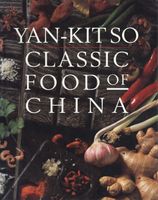Even though Chinese historical and literary records on food go back to the Zhou dynasty (11th century–221 BC), many of the books written on cookery before the 6th century AD have been lost to posterity, and it is not clear why or how they disappeared. We only know of their existence through references in other books or fragments of what is left of them. The most poignant example is Shi Jing or The Book of Food, written by Cui Hao, who was prime minister at the beginning of the Northern Wei dynasty (ad 386–534), but was executed for treason in AD 450. All of his book, save for the preface, has been lost. In what remains we learn of how, as a child, he used to watch his mother, as well as his father’s concubines and other aunts and women, all cooking together. Even though the family was a large, wealthy household in Hebei province in the north of China, his mother, assisted by other women, would herself cook on all the important family occasions – such as ancestor-worship, birthdays and annual festivals – rather than assign the work to servants and maids. Later, however, for more than ten years, as the country was going through political turmoil, both festive and formal entertaining in the house came to a complete halt. His mother was worried lest her cookery art and the family recipes be lost to the generations to come. She therefore sat her son down to take dictation from her while she recounted every recipe, from day-to-day fare to banquet dishes, together with the cookery methods. What Cui wrote down, he attested, amounted to nine chapters which he compiled into a book. Alas, not even one recipe from it has survived.

